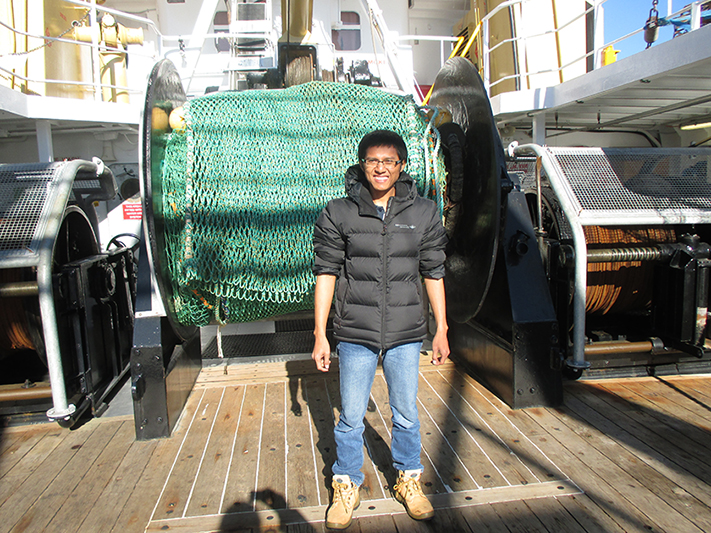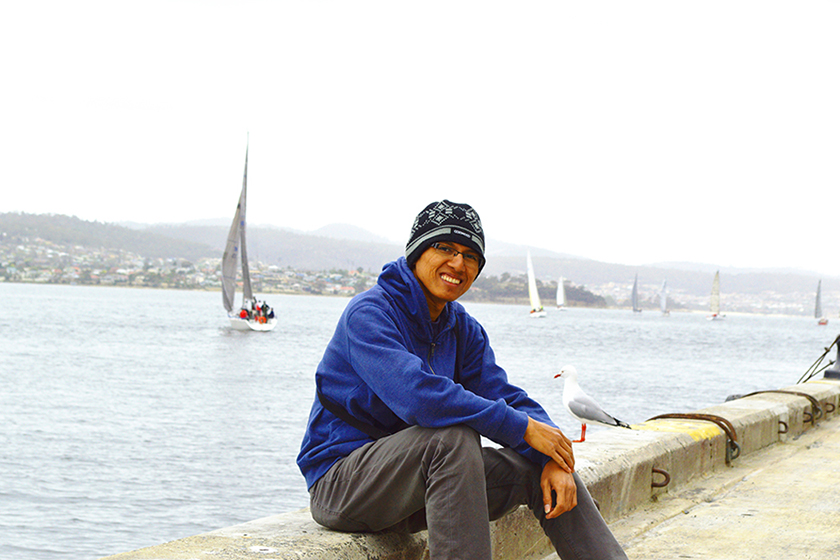Who would’ve thought that magnets might save the lives of endangered sharks?
Meet Muhammad Arif Rahman, an Australian-trained marine scientist who spent years studying the effects of magnets to deter sharks from the fisheries of Tasmania, an island state in the south of Australia.
His innovative research could support both the fishing industry and the conservation of sharks. His experiments with sharks in tanks have found they behave differently around powerful magnets. These may be used to help fishermen to sustain their catch and protect sharks from being an incidental catch.
Marine science wasn’t Rahman’s first choice of study. Growing up in the East Java town of Lamongan, Rahman had wanted to study chemistry, but he failed to secure a place through the highly competitive invitation-only scheme. Instead, he dived into marine fishery at the University of Brawijaya through the state exam.
The 32-year-old said that while studying for his Master’s degree in Applied Science (Marine Environment) at the University of Tasmania, he noted that many lobster fishermen were having difficulties with sharks entering the lobster traps.
The sharks were attracted to the traps by the bait or by the lobsters, but then became trapped as well.
“When the sharks enter the fishing gear, the lobsters won’t enter. One of the ways to prevent the sharks from entering the traps is by using magnets,” said Rahman, who has returned to the University of Brawijaya as a lecturer.
Sharks have the ability to detect weak electromagnetic fields but there is only so much they can tolerate. Any electromagnetic wave beyond their level of tolerance will cause discomfort to sharks and drive them away, Rahman said.
Deterring the sharks from entering the lobster traps could save their lives and could help the fishermen get their main catch.
He hopes to undertake similar research in Indonesia where many traditional fishermen are using longline fishing – locally known as Rawai – and have also reported the intrusion of sharks.
“This is what I would like to research, whether magnets can be utilised in the conservation and reduction of shark catches in Indonesia,” said Rahman, who was a recipient of Australia Awards Scholarship, previously known as Australian Development Scholarship.
He also wants to research the characteristics and population of Indonesia’s pelagic fish – or those that live neither close to the bottom nor near the shore – such as tuna. The country could benefit from the research because the highest catches in Indonesian waters are from the pelagic species, he said.
The use of magnets in fishery is just one example where Rahman’s education in Australia gave him new perspectives. As a lecturer, he has also gained new ways to explore his teaching methods and renewed appreciation of practical work for his students.
“Practical work is important and can encourage the students to learn even more,” he said.
Indeed, practical observation was also at the heart of his study in Australia. His thesis required him to undertake a year of practical experience, in addition to a year of rigorous theoretical research, completed in 2016. Rahman credits his supervisor at the University of Tasmania for always being open to discussion, aside from mentoring the work of his thesis.
“It (the experience) taught me a lesson in how to become a good mentor,” said Rahman, who now misses the autumn time and the natural wonders of Tasmania, famous for its National Parks.
Asked why he loves science, Rahman said: “science is constantly evolving, the discovery of a single finding through science is very likely to be used in other fields (of study). This is what attracts me to study science. We have the opportunity to invent.”



 Indonesian Marine Scientist Muhammad Arif Rahman Shares His Shark Tale
Indonesian Marine Scientist Muhammad Arif Rahman Shares His Shark Tale
